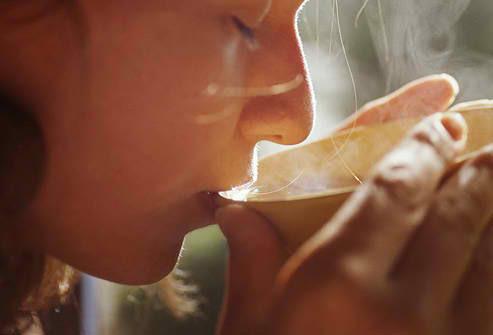Tis the Season … for Flu, Virus and Infection
Posted by SALINA - TEAS.COM.AU

Don’t Let Flu Season Get You Down – National Hot Tea Month Toasts to an ‘Immune Boost’
After an initial expectation of a flu-shot shortage, and experts’ predictions that the winter of 2005 is likely to be a bad year for the flu, many are turning to alternate ways of helping to maintain the body’s immune system during the upcoming cold and flu season. Knowing “what to do to avoid the flu,” especially during the peak flu months of January through March, will be key to staying healthy:
- Avoid close contact with people who are sick
- Wash hands frequently to keep germs at bay
- Exercise regularly to improve overall health, including healthy immune function
- Drink plenty of fluids to keep hydrated
Beyond basic hydration, certain beverages like black and green tea, may even offer more help by boosting the body’s natural ability to fight viral infections. In a study published in the May 13, 2003 issue of the Proceedings of the National Academy of Sciences, researchers found that study participants who drank 20 ounces (about three cups) of black tea per day produced five times the amount of certain germ-fighting immune cells as those who drank the same amount of coffee. The researchers believe that these findings suggest that tea drinkers may have a better chance of fighting off an infection than non-tea drinkers because of this increased immune response, though further research will be needed to confirm this effect. In an earlier study, in June 1997, Japanese researchers found that gargling with black tea extract twice daily was an effective prophylactic against flu infection in study subjects. But why just gargle with tea when drinking it is a tasty way to get the hydrating fluids you need and may help your body ward off flu or a cold?
In addition to this research, volumes have been published about the potential health benefits of tea, which contains flavonoids a dietary antioxidant. Antioxidants are substances that protect the body from oxidative damage helping to maintain healthy cells and tissues. A multitude of research studies suggest that drinking tea can be included as part of a healthy diet and may contribute to overall health. Population based studies have found that tea drinkers have a reduced risk of certain chronic diseases, including heart disease and some types of cancer. This body of credible research grows every day. Here are a few recent findings about the potential health benefits of tea:
- Cardiovascular health benefits, including reduced risk of heart attack, stroke and other forms of heart disease, and improved blood cholesterol ratios (“good” and “bad” cholesterol levels)
- Reduced risk of certain cancers, including colorectal and skin cancers
- Reduced levels of oxidative DNA damage and increases in antioxidant levels in blood stream
- Benefits to bone health, as researchers have noted a correlation between long-time tea drinkers and stronger bones
- Oral health benefits, as researchers believe certain compounds in tea may inhibit bacteria that cause bad breath and plaque, and the fluoride content in tea supports healthy tooth enamel
“January’s National Hot Tea Month can serve as a reminder to do something healthy for ourselves, like brew a hot cup of tea, which may provide a variety of health benefits as well as help our bodies ward off persistent cold and flu germs,” said Joe Simrany, president of the Tea Council of the USA. “And it may just be the quintessential ounce of prevention we need this season.”
(By Arrivenet.com, Jan 2005)
Article URL: http://press.arrivenet.com/bus/article.php/555581.html
TAGS:
SHARE:

AUSTRALIA'S FINEST LOOSE LEAF TEAS
Explore Australia's largest selection of Premium Teas & All-Natural Organic Herbal Blends.


